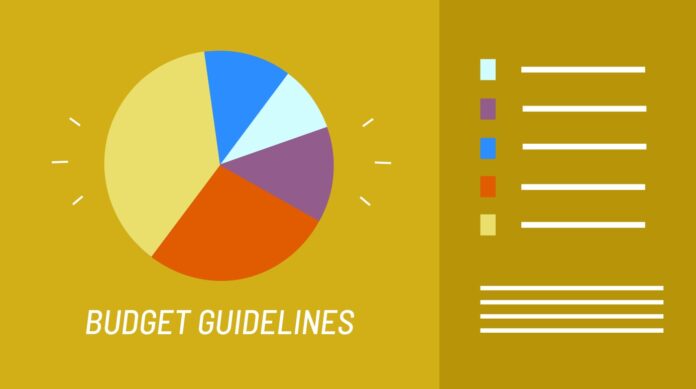Divorce carries not only emotional consequences, but also financial ones. This process involves solving many organizational and legal issues related to property division, alimony, court fees, etc. And even after a divorce, your own budget will change. Therefore, we recommend that you adopt practical advice on planning for divorce financially.
Collect All Financial Documents and Records
Divorcing couples should review all prenuptial agreements or other legally binding contracts in place. Gather all of these documents together and keep them in a safe place so they can be easily accessed if needed during the divorce process.
To plan a budget after filing for divorce online in Washington, you also need to analyze the current financial situation of each of the parties. To do this, you need to collect monthly utility bills, shopping receipts, include entertainment expenses, child support or alimony payments, and more. By creating a complete picture of each party’s current lifestyle, couples can better plan their future budget after the divorce is finalized.
Make a Budget for Living Expenses

Be sure to include recurring expenses, such as vacations and holidays, in your new budget. If there is anything left over after covering all your living needs, you can use that money for savings or investments for the future.
Review your budget periodically to make sure it’s still relevant, taking into account changes in your income or expenses. Divorce financial planning is an important step in managing financial income during and after the divorce process.
Calculate the Value of Assets and Liabilities
This includes details such as the market value of real estate and movable property, outstanding balances on mortgage loans and credit cards, current interest rates, and more. Couples should also consider any changes in the value of the assets since the purchase. This will help the parties know what they are entitled to after the divorce.
Financial planning for divorce also involves understanding how certain assets and liabilities will be divided between spouses. For example, if one spouse has investments or retirement accounts, those assets may need to be divided according to pre-divorce agreements or a court order.
On the other hand, if both spouses jointly own real estate or other assets, it will be necessary to determine which spouse will receive ownership of each asset before dividing them in half. Divorce financial planning will help couples receive fair compensation under applicable family law.
Determine How to Fairly Divide Assets and Debts

Before discussing the division of property, both parties must provide each other with full information about all their assets and liabilities. In addition, it is important that couples review any prenuptial agreements, if any.
Once assets and liabilities have been determined and honestly disclosed by both parties, a fair distribution of assets can be expected through mediation or litigation, as the case may be.
At the same time, it is necessary to take into account such factors as the income potential of each party, contributions to the marriage (including non-monetary contributions), age, state of health, needs of minor children, etc.
For couples going through a divorce, it is important to take the time necessary to ensure a fair distribution of assets and debts in order to protect their financial future.
Consider the Tax Implications of Asset Allocation

If one spouse will be receiving a large portion of the equity from the family home, they should be aware of the capital gains taxes they will have to pay if the home is sold. If certain investments are to be split between both spouses, they must consider the taxes that may be levied on any income earned on those investments.
Considering all the possible tax consequences of dividing assets should be a key part of financial planning for divorce in 2024. As a result, divorcing couples can make more informed decisions about which assets to keep or divide, and how best to manage their finances after the process is complete.
| Tips for Divorce Financial Planning in 2024 |
|---|
| 1. Gather and Organize Financial Information |
| Collect all relevant financial documents, including bank statements, investment accounts, tax returns, property deeds, and loan documents. Organize these documents to have a clear understanding of your financial situation before and during the divorce process. |
| 2. Create a Budget and Assess Expenses |
| Develop a budget that reflects your post-divorce financial situation. Consider your income, expenses, and any potential changes in financial responsibilities. Evaluate your spending habits and identify areas where you can reduce expenses or make adjustments to align with your new financial circumstances. |
| 3. Determine Your Financial Goals |
| Define your short-term and long-term financial goals after the divorce. This may include establishing a separate bank account, building an emergency fund, or creating a new investment strategy. Having clear goals will help guide your financial decisions and actions during and after the divorce process. |
| 4. Consult with Professionals |
| Seek advice from financial professionals, such as a divorce financial planner or a certified divorce financial analyst (CDFA). They can provide insights and guidance on complex financial matters related to divorce, including asset division, tax implications, and long-term financial planning. |
| 5. Understand the Marital Assets and Liabilities |
| Gain a thorough understanding of the assets and liabilities acquired during the marriage. This includes properties, investments, retirement accounts, debts, and any joint accounts. Determine what is considered marital property and what may be subject to division during the divorce process. |
| 6. Consider Tax Implications |
| Be aware of the potential tax implications of divorce-related decisions. Consult with a tax professional to understand the tax consequences of dividing assets, alimony or spousal support payments, child support, and other financial aspects. Consider the impact on your tax filing status and future tax obligations. |
| 7. Update Legal and Financial Documents |
| Review and update your legal and financial documents to reflect your new post-divorce circumstances. This may include updating your will, beneficiary designations, power of attorney, and health care directives. Consult with an attorney to ensure that these documents align with your current wishes. |
| 8. Plan for Insurance Coverage |
| Assess your insurance needs and make necessary adjustments. This includes health insurance, life insurance, auto insurance, and homeowners or renter’s insurance. Determine if you need to establish separate policies or update existing ones to ensure adequate coverage for you and any dependents. |
| 9. Establish an Emergency Fund |
| Build an emergency fund to provide financial security during and after the divorce process. Aim to set aside three to six months’ worth of living expenses in a separate savings account. This fund can help cover unexpected expenses and provide a financial cushion during the transition period. |
| 10. Keep Emotions Separate from Financial Decisions |
| Try to separate your emotions from financial decisions. While divorce can be emotionally challenging, it’s essential to approach financial planning with a clear and rational mindset. Focus on long-term financial stability and make decisions based on your best interests and financial goals. |
| 11. Maintain Open Communication |
| Maintain open and honest communication with your ex-spouse and any professionals involved in the divorce process. Keep each other informed about financial matters, updates, and changes. Effective communication can help avoid misunderstandings and facilitate a smoother financial transition. |
| 12. Prioritize Self-Care and Seek Support |
| Divorce can be stressful, emotionally draining, and overwhelming. Prioritize self-care and seek support from friends, family, or a therapist. Taking care of your mental and emotional well-being is crucial during this challenging time, as it can positively |
Open Separate Bank Accounts and Credit Cards
This will help limit unnecessary costs and at the same time allow each party to access the necessary funds during this difficult time. Also, having separate accounts will help ease the financial transition during a divorce, as both parties will be able to easily keep track of how much they’ve paid out and what they’ve received in return.
Divorce financial planning should also include budgeting for both parties so that they can control income and expenses after the divorce. Setting up separate bank accounts and credit cards is an important step in this process, as it allows each party to budget based on their individual needs and circumstances.
Having separate accounts also makes it easier for both parties to keep track of their finances after the divorce. So all potential problems could be solved quickly and easily.
Seek Professional Advice From a Financial Planner or Lawyer
A financial planner can help you determine which assets you need to keep, which can be sold, and how much should be split between the two parties.
From a lawyer, you will receive sound advice on possible tax consequences related to the distribution of property and assets. You will also receive instructions on how to apply for alimony and any other benefits that may be available after the divorce is finalized. With the expertise of a financial planner or lawyer, you can make smart decisions about how to manage your finances during this difficult time.









